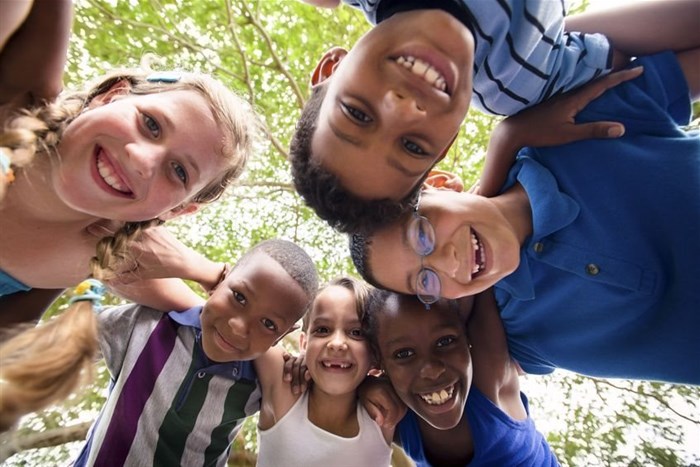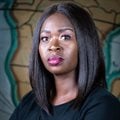In celebration of Youth Month, six young candidate attorneys from Spoor & Fisher chatted to us about children's rights, their wishes for future generations, and shared some sage advice passed on to them from their elders.
Full-time candidate attorney and part-time musician, Kagiso Magabe's parents were involved in the riots of 16 June 1976, the entire reason we now commemorate Youth Day. "[My parents] fought for me to be able to speak English and be in the same league as my colleagues. Seeing more and more black professionals come to forefront of the legal fraternity is amazing to see. The battle of those before us was not in vain. As a young candidate attorney, I feel that it is important to pay it forward even in small ways."
Spoor & Fisher associate, Tebogo Motlousi echoes Magabe's sentiments: "I get to experience the privileges that many were denied. Had it not been for them, the education that brought me this far, might not have happened."
Coming from a family of lawyers, candidate attorney Thato Moloto says that for him, the significance of Youth Day has evolved over the years from an external expression of potential through his actions, to something more introspective. "With what we have inherited in a seemingly fragile legal system, rigid systems of practice grappling with a fast-evolving world and laws developing at a much slower pace than the needs of our new society, the question I often ask myself on Youth Day is how much power we realistically have to displace the obsolete for the progressive," Moloto remarks.
Thembokuhle Danca, also a candidate attorney, got into law knowing it will provide him with unlimited options for his career: "Coming from a small town I always felt a bit restricted with the choices I had growing up. Law ... is forever evolving, cutting across all social aspects and industries of trade, allowing me to experience all types of work." Law has an immense power to drive change, and Danca wants to be part of that: "Our country still has a long way to go and needs substantial reform. I believe that the best way I can be an agent of change is by influencing the way the law develops, especially in tackling the prevalent issues in our country.
"Youth Day reminds me of the power that we hold as young people in this country," Danca continues.
We are not just the drivers of change and innovation, but we are the change. The future of those who follow in my footsteps rests in the decisions that I take today. The youth of 1976 took a decision to fight for the liberation of all the youth. We, in turn, are entrusted with making the right decisions in order for our successors to have a better future.
Nishaat Slamdien, a candidate attorney who is currently completing her Masters in IP law, says that "Youth Day serves as a reminder to honour, commemorate and reflect on the brave actions of the heroic young activists who fought against systemic injustices to achieve substantive equality. As a young attorney, Youth Day reminds me that I have the ability, through the legal profession, to use the law and the resources of the corporate sphere to further the path of transformation which had been paved by the class of 1976. Their resilience highlights that each generation has a rippling effect on the next. As a result of their battle, the youth of today are provided with many educational opportunities. Their sacrifice encourages me to advance and act on the mandate of the Constitution."
Cwengile Dweba, now an intern with Spoor & Fisher, studied Genetics and Microbiology at the University of KwaZulu Natal, before earning her Master of Science (Plant Breeding). She was in the middle of her PhD when she discovered the world of intellectual property and promptly changed career track: "The significance of Youth Day to me is that if you put your mind into something and are determined, nothing is impossible no matter how old you are."
Children's rights
Motlousi believes the most important right children have today is the access to information. "As much as we have the right to education, there is still important information children today do not have access to," he explains. "As a village child myself, I only had access to certain amenities at a much later stage in life compared to my urban counterparts. Although I was receiving education, I was not obtaining certain critical information. The two rights are related, but I believe a thin line separates them and makes all the difference."
Magabe considers a child's right to be seen the same as others - regardless of race, background or religious beliefs - as their most important right: "Although I wish that was enforceable," she laments. Dweba reiterates the importance of a child's right to equality: "Every child should have the same opportunities; what each child does with that opportunity is a different story."
"I believe that a child’s most important right, much understated and increasingly relegated to a lesser right, is the right to be a child," insists Moloto.
That is, to the best of their parents’ and society’s abilities, to not be burdened with considerations, choices, and responsibilities that many adults themselves struggle with. Eager to empower children with control, sometimes we forget the weight of responsibility that accompanies that empowerment.
Danca supports freedom of expression as the most important right children have: "This is a broad right that is entrenched in every facet of our lives. This right plays a crucial role in shaping the identity of a person. One of the greatest injustices of apartheid was that people of all race and colour never had the freedom to choose how they lived their lives and could never properly express themselves.
"The government dictated who people could interact with, how they interacted with those people, how they moved around and what people could say or not say," Danca continues. "The effects of this were disproportional, affecting black people to a greater degree. This must have had a major impact on the identity of South African, more so on children who could not even express themselves in schools, which play a crucial role in helping a child form his/her identity. I believe that freedom of expression was one of the many rights that the youth of 1976 fought hard for and died. I believe that we have come a long way in realising this right, however there is still a long way we need to go in order to properly appreciate it."
Slamdien backs Nelson Mandela's belief that 'Education is the most powerful weapon which you can use to change the world.' "Children are synonymous with the future, change, transformation, and progression," she says. "As children represent generational renewal, I strongly believe that every child should have the right to access to quality education, no matter their personal circumstance, as education has the ability to enrich young minds, transform individuals, communities, countries and the future of society."
Changes for youth of today
Motloutsi, Danca, Slamdien, Dweba and Magabe would all grant greater access to our youth - greater access to education, jobs and the economy, along with the opportunities they bring.
Says Slamdien: "The sacrifices of the class of 1976 highlights that the youth have the potential to change the world. We need to enable them to do just that. That means providing them with better access to quality primary, secondary and tertiary education to provide them with relevant the knowledge and skills. A meaningful and proper realisation of our Constitutional rights is needed. As emphasised by the 16 June 1976, if we want to create a better future, we have to invest in those who will create it."
Dweba points out that youth, especially those in disadvantaged areas, need exposure to different things from an early age. Highlighting an enormous gap, Dweba explains: "Youth in my home town experience a computer for the first time when they go to university (and only those who even make it to university)."
Danca expands on this: "I would like to see more platforms that enable the youth to learn practical skills. Not enough is being done to impart skills such as coding, entrepreneurial skills, or even financial planning, to the youth. I believe that the ideal place to bring about this change would be to introduce subjects like coding or financial planning in high schools or even primary schools. Therefore, the one thing I would change for our youth is to introduce these subjects within the secondary phase of their schooling."
Moloto, on the other hand, would give youth the right to have a say in any laws affecting them. As laws, policies and social practices pertaining to youth are often created by those who will not live long enough to deal with their long-term consequences, any such regulations should be "subject to the explicit formal acceptance by that very youth it is likely to affect," says Moloto.
Advice of your elders
Motloutsi: "Be humble. This will open many doors for you."
Magabe: "Don’t ever feel bad for having a bad day, don’t let anyone make you feel that your problems aren’t worth having a bad day. But with that said. It’s a bad day, not a bad life."
Dweba: "My mother has always taught me that nothing is beyond my reach regardless of where I come from. I can break barriers of limitations."
Slamdien: “Your life is your responsibility so enjoy the journey and take risks along the way. View your mistakes as learning opportunities and not as things that are to be avoided. Always take a moment to appreciate the small victories and then keep going. Do not limit yourself and break any preconceived notions you have.”
Danca: "Do all the little things, because it is the little things that will make you great. As young people we often forget that having a firm understanding of the basics can go a long way in building your career."
Moloto: "A headmaster at a school I once attended once said, 'Leave a place in the same or better condition than how you found it.' This was specifically with reference to classroom but he also said we must take on that approach in life as well if we do not want to live in a much worse world today than yesterday. Since then, I try every day to follow that advice with people, with physical spaces and on how approach my career."








































